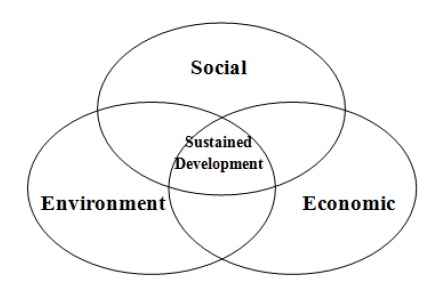Sustainable Lifestyle: A Path towards Environmental Sustainability and Sustainable Development
DOI:
https://doi.org/10.54741/mjar.3.4.8Keywords:
sustainable lifestyle, sustainable development, environmental sustainabilityAbstract
The idea of sustainable life is thought to have reached its usefulness limit. A sustainable lifestyle is a critical component of achieving environmental and economic sustainability. It entails a comprehensive approach to daily decisions and actions that reduce negative environmental impacts while improving individual and societal well-being. This paper delves into the essential components of a sustainable lifestyle, such as responsible consumption, reduced waste output, energy efficiency, water conservation and a shift toward environmentally conscious mobility. Adopting such a way of life not only saves natural resources, but it also promotes a healthier, more equal, and resilient society. Individuals can contribute to a harmonious cohabitation between humans and the environment by aligning personal beliefs with sustainable actions, paving the way for a more sustainable and prosperous future. This possibility is explored in this paper and tries to provide a path ahead for renewing our current knowledge and approach towards sustainable lifestyle.
Downloads
References
Akenji L, & Chen H. (2016). A framework for shaping sustainable lifestyles. United Nations Environment Programme.
Böhme, J, Walsh, Z, & Wamsler, C. (2022). Sustainable lifestyles: Towards a relational approach. Sustain Sci., 17, 2063–2076. https://doi.org/10.1007/s11625-022-01117.
Dariush & Farhud. (2017). Life style and sustainable development. Iran J Public Health, 46(1), 1–3.
Ehrenfeld JR. (2008). Sustainability by design: A subversive strategy for transforming our consumer culture, kindle. Yale University Press.
Gennari P. (2007). Key indicators of sustainable development. Available at: http://www.mofa.go.jp/policy/economy/eismap/k_seminar/Round-2-3.pdf.
Gilby S, Mao C, Koide R, Watabe A, Akenji L, & Timmer V. (2019). Sustainable lifestyles policy and practice: Challenges and way forward. Institute for Global Environmental Strategies, Hayama.
Harris JM. (2001). Basic principles of sustainable development. Washington DC: Island Press.
IPCC. (2014) Climate change 2014 synthesis report contribution of working groups I, II and III to the fifth assessment report of the intergovernmental panel on climate change. [Core Writing Team, RK Pachauri and LA Meyer]. IPCC, Geneva, pp. 151.
Institute for Global Environmental Strategies, Aalto University, & D-mat ltd. (2019). 1.5-degree lifestyles: targets and options for reducing lifestyle carbon footprints. Technical report. Institute for Global Environmental Strategies, Hayama.
Jensen M. (2007). Defining lifestyle. Environ Sci., 4(2), 63-73.
Mont O, & Power K. (2010). The role of formal and informal forces in shaping consumption and implications for a sustainable society, Part I, Sustainability.
Van Vliet P, Chappels H, & Shove E. (2005). Infrastructures of consumption, environmental innovation in the utility industries. Earthscan: Routledge.
World Commission on Environment and Development. (1987). Our common future. Oxford: Oxford University Press, pp. 27.

Downloads
Published
How to Cite
Issue
Section
License
Copyright (c) 2023 Shahnaz Akhtar

This work is licensed under a Creative Commons Attribution 4.0 International License.
Research Articles in 'Management Journal for Advanced Research' are Open Access articles published under the Creative Commons CC BY License Creative Commons Attribution 4.0 International License http://creativecommons.org/licenses/by/4.0/. This license allows you to share – copy and redistribute the material in any medium or format. Adapt – remix, transform, and build upon the material for any purpose, even commercially.









